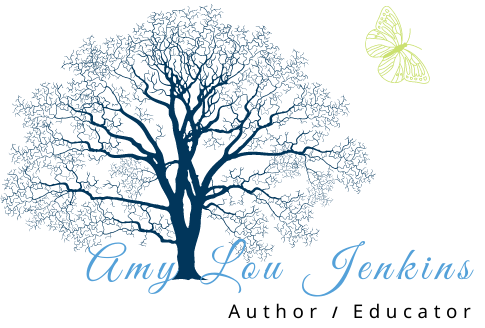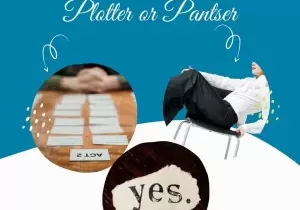
Readers Crave Novel Experiences: Fun Words May Be a Part of Meeting Their Expectations
Find More Than a 100 Examples
Some words feel fun to the ear and are enjoyable to say. They adorn our conversations and narratives with an extra dash of whimsy and delight. But what makes a word fun, and when should we sprinkle them into our language? Let's unravel the enchanting qualities of these lexical treasures and explore their impact on readers of all ages.
Fun words possess a unique charm derived from their phonetic qualities, visual imagery, and novelty of usage. Phonetically, they often feature rhythmic or melodic sounds that roll off the tongue with playful ease. Consider the soft lilt of "l" in "lullaby" or the crisp snap of "b" in "bubble"—these sounds not only delight the ear but also create a musical cadence in speech and writing.
The Charm of Fun Words
Visually, fun words evoke vivid imagery or associations that spark the imagination. Whether it's the fluttering grace of a "butterfly," the whimsical chaos of "pandemonium," or the delightful absurdity of "gobbledygook," these words paint colorful pictures in the mind's eye, adding depth and vibrancy to our communication.
Moreover, the novelty of fun words—whether they're borrowed from other languages or literary culture, playfully coined, or simply uncommon—adds an element of surprise and intrigue to our language. Readers are attracted to novelty. Uncommon fun words stand out amidst the ordinary, infusing writing and stories with a sense of whimsy and joy.
A Few Origins of Fun Words
Pull Down Your Shirt in Back
The origin of the word "kiester" is not entirely clear, but it is believed to have originated in American slang during the early 20th century. It is often used colloquially to refer to the buttocks or posterior. The precise origin of the term is uncertain, but it may have derived from the German word "kiste," which means "box" or "chest." Over time, "kiester" came to be used in American English as a humorous or slang term for the buttocks, likely through linguistic evolution and cultural adaptation. Today, it remains a playful and informal way to refer to this part of the body in certain contexts.
Goofball Synonym
The word "flibbertigibbet" is believed to have originated in England in the 15th century. It first appeared in Middle English as "flepergebet," which was used to describe a frivolous or flighty person. Over time, the word evolved into "flibbertigibbet" as we know it today, maintaining its meaning of a gossipy, talkative, or whimsical individual. Shakespeare famously used the term in his play "King Lear," where it is spoken by the character Edgar. While the exact etymology of "flibbertigibbet" remains uncertain, it is thought to be an example of nonsensical wordplay, perhaps influenced by similar-sounding words of the time. Despite its obscure origins, "flibbertigibbet" has endured in the English language as a playful and colorful descriptor for someone who is flighty or frivolous.
Things Not Going Smoothly
The word "kerfuffle" originated in Scottish English in the 19th century. It is believed to have evolved from the Scottish Gaelic word "curfuffle," which means "disorder" or "confusion." The exact etymology is somewhat uncertain, but it likely entered English through Scottish dialects and gained popularity over time. "Kerfuffle" is commonly used to describe a commotion, disturbance, or fuss, often in a lighthearted or humorous manner. Today, it is a well-established part of the English lexicon, reflecting the ongoing influence of Scottish language and culture on the English language.
When to Use Fun Words
But when should we employ these delightful words? When we seek to enliven our language and engage our readers or listeners. In narratives, fun words inject personality and charm, transporting readers to worlds of imagination and wonder. In conversations, they foster connection and amusement, sparking laughter and delight. And in educational settings, they can captivate learners of all ages, making language acquisition a joyful and memorable experience. Yet each time you write a project, you have established a contract with the reader. Silliness and fun are in demand, but not always. Even if you are not writing comedy, falling on you kiester might inject more playfulness into your prose than falling on your backside. Kiester, might not set the right tone for a heavy subject, or a professorial narrator.
For younger readers, fun words serve as linguistic playgrounds, inviting them to explore the rich tapestry of language with curiosity and enthusiasm. These words ignite their imaginations, turning stories into adventures and learning into play. For older readers, fun words offer a welcome respite from the mundane, infusing everyday communication with a sense of playfulness and joy.
Here are some examples. Please add your words to the comment section below.
Nouns:
- Bumblebee
- Whimsy
- Tiddlywinks
- Kerfuffle
- Snickerdoodle
- Quicksilver
- Lollygag
- Malarkey
- Doohickey
- Pandemonium
- Razzmatazz
- Hootenanny
- Hullabaloo
- Shenanigans
- Fandango
- Jamboree
- Gadabout
- Waddle
- Fiddlesticks
- Zephyr
- Fiddle-dee-dee
- Dillydally
- Mumbo-jumbo
- Tizzy
- Riffraff
Verbs:
- Gallivant
- Serendipity
- Skedaddle
- Befuddle
- Wibble-wobble
- Jabberwocky
- Flummox
- Higgledy-piggledy
- Razzle-dazzle
- Gobbledygook
- Wriggle
- Frolic
- Gambol
- Prance
- Capsize
- Jiggle
- Boogie
- Muddle
- Hiccup
- Clamor
- Swagger
- Tumble
- Shimmy
- Wobble
- Fizzle
Adverbs:
- Zippily
- Wackily
- Dizzily
- Mirthfully
- Flibbertigibbetly
- Zestfully
- Spiffily
- Snazzily
- Gigglingly
- Whimsically
- Merrily
- Sprightly
- Quirkily
- Wackadoodle
- Wobbly
- Nimbly
- Silly-willy
- Dorkily
- Fuzzily
- Topsy-turvy
- Perky
- Jovially
- Blithely
- Ticklishly
- Frothily
Adjectives:
- Bubbly
- Wiggly
- Quirky
- Zany
- Befuddled
- Giddy
- Whimsical
- Snazzy
- Wobbly
- Higgledy-piggledy
- Flippant
- Wacky
- Gobbledygookish
- Rambunctious
- Peculiar
- Fizzy
- Fanciful
- Quizzical
- Ziggurat
- Blithe
- Frivolous
- Spry
- Bizarre
- Wacky
- Bumbling
Interjections:
- Huzzah!
- Eureka!
- Yahoo!
- Whee!
- Gadzooks!
- Voila!
- Alas!
- Whoopsie-daisy!
- Gee whiz!
- Aha!
- Wowza!
- Yippee!
- Kapow!
- Hip-hip-hooray!
- Yowza!
- Egads!
- Oh là là!
- Fiddlesticks!
- Zounds!
- Bravo!
- Holy smokes!
- Hooray!
- Oh my goodness!
- Tally-ho!
- Cheers!
In essence, fun words are more than mere linguistic curiosities—they're the building blocks of imagination, the catalysts of laughter, and the bridges that connect us through the shared joy of language. So let us embrace these whimsical treasures in many but not all writing projects and revel in the magic they bring to our words and worlds. Add your fun words to the comments below.










